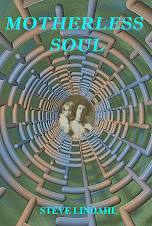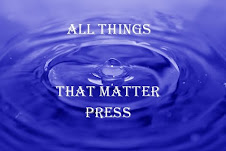Thursday, April 24, 2014
Brief Reading of White Horse Regressions by Steve Lindahl
I've created a short video of my reading of Hannah's first Regression in my second novel, White Horse Regressions. I hope you enjoy it.
White Horse Regressions is available online through Amazon and Barnes and Nobles. It's also available at the following bookstores:
Barnhill's in Winston-Salem, NC;
Scuppernong in Greensboro, NC;
The Purple Crow in Hillsborough, NC;
Park Road Books in Charlotte, NC;
The Quest in Charlottesville, VA
Saturday, April 19, 2014
The Deception of the Emerald Ring by Lauren Willig
 The Deception of the Emerald Ring by Lauren Willig
The Deception of the Emerald Ring by Lauren WilligMy rating: 4 of 5 stars
The Deception of the Emerald Ring is the third book in Lauren Willig's Pink Carnation series and I have to confess I haven't read the first two. But it seems to stand well on its own. It's a light read, which means that although the characters get into some dangerous situations, they never stop tossing quips at each other. That's fun, but I suppose it could be disappointing to someone expecting a serious spy novel, especially since this is based on a real situation when France, England's enemy at the time, was conspiring with Irish rebels against the crown.
The plot is about a nineteenth century, English marriage between Letty Alsworthy and Lord Geoffrey Pinchingdale that comes about through a series of events including a mistaken identity, a botched elopement, and an over the top sense of honor that doesn't seem well advised. The romance in this book starts with a marriage rather than ending with one.
The 1800s story is bracketed by a modern tale about a woman researching the nineteenth century events as part of her work on her doctorate. I couldn't see any reason for the modern story, although it might have made more sense to me if I'd read the preceding books in the series.
One of the aspects of the book I found most interesting was Letty's relationship with her older sister, Mary. Lord Pinchingdale was supposed to marry Mary, not Letty. Letty was the less attractive, less sophisticated, sister. Mary had been trying to catch a suitable man for awhile and Lord Pinchingdale seemed her best hope.
Letty had a fair inkling of what Mary had been thinking. Letty's older sister had passed three Seasons as society's reigning incomparable. Three Seasons of amassing accolades, bouquets, even the odd sonnet, but shockingly few marriage proposals. Of the offers that had come in, three had been from younger sons, four from titles without wealth, and an even larger number from wealth without title. One by one, she had watched her more eligible suitors, the first sons, with coronets on their coaches and country estates to spare, contract matches with the chinless daughters of dukes, or bustling city heiresses.
Mary hadn't wanted to take any more chances so she planned an elopement. That's when things started going awry. Letty compares herself to her sister throughout the book in an intriguing manner that says more about her own self confidence than it does about her sister.
The Deception of the Emerald Ring is a fun read based on a real event. I enjoyed it.
Steve Lindahl – author of Motherless Soul and White Horse Regressions
View all my reviews
Saturday, April 12, 2014
Paris by Edward Rutherfurd
 París by Edward Rutherfurd
París by Edward RutherfurdMy rating: 5 of 5 stars
The first remark I need to make about Paris by Edward Rutherfurd is that it is not written in a linear time frame. New York, the other book by Rutherfurd I have read, is linear and for that reason I found it easier to keep track of the characters. This book, like New York, follows a few families through the centuries, so the focus might be on the young adult years of a single person during one chapter and on his or her father's early life in the next. I noticed this point was made in many of the other reviews, but it is important enough for me to mention it again.
My wife and I went to Paris about a year and a half ago. It was my first trip to Europe, so I was excited to learn more about the city I had visited. The novel did not disappoint. During our trip my favorite section of Paris was Montmartre, the mountain where the Sacré-Cœur Basilica is located. In Rutherfurd's book a working class family named Gascon lives there. We get to follow Thomas's work on the Statue of Liberty and also on the Eiffel Tower and then we get to follow his brother Luc's less than reputable life.
This is historical fiction, so some of the characters are based on the lives of real people while others are created for the story. The kings were interesting, or course, but I really enjoyed Thomas' relationship with Monsieur Eiffel and the discussions they had about the engineering of the tower. Also, Montmartre is interesting in ways I didn't realize when we visited it. The mountain consists primarily of gypsum, from which plaster can be made (plaster of Paris). Gypsum is a soft material and is valuable enough to motivate the creation of numerous mines. For these reasons the mountain wasn't the best place to build a huge cathedral. The builders had to establish a foundation by digging a number of giant shafts and filling them with concrete. As a result the comment was made that Montmartre isn't holding up the church. It's the church that's holding up Montmartre.
I enjoyed learning about the history of the Louvre and Versailles, but what was more fascinating to me was the history of bigotry in the city. Antisemitism was prevalent in Paris through the centuries and there were other forms of bigotry as well. The hatred between Protestants and Catholics created a great amount of violence and death. France is a Catholic country. The Inquisition went on within its boundaries for centuries. Rutherfurd does an excellent job of showing his readers the results of this political decision on individuals. And he shows antisemitism through the lives of the Jacob family. Sometimes the bigotries are subtle and sometimes they are massive.
As I mentioned at the beginning of this review, I didn't think this novel was put together as well as Rutherfurd's New York, but it's still a five star book.
Steve Lindahl - author of White Horse Regressions and Motherless Soul
View all my reviews
Tuesday, April 1, 2014
Out of the Box: A Soul's Surprising Journey by Barbara Lucerne Woolley
 Out of the Box: A Soul's Surprising Journey by Barbara Lucerne Woolley
Out of the Box: A Soul's Surprising Journey by Barbara Lucerne WoolleyMy rating: 5 of 5 stars
Out of the Box by Barbara Lucerne Woolley is a guide book for the soul with beautiful lessons on each and every page. It is also a memoir, since all the experiences and lessons learned either happened to the author directly or were told to her by teachers and mentors she sought out. These two halves fit together to make a beautiful whole because of Woolley's nature. She is an amazingly open woman – open to the messages around all of us every day and open to sharing those experiences with her readers. It was a wonderful experience to be one of those readers.
The book, which has the full title of Out of the Box: A Soul's Surprising Journey, starts out by describing the complications of the author's birth and the complications of her relationship with her parents. Barbara's mother did not have time to bond with her in the days that followed the birth because Barbara had to stay in the hospital while her mother was sent home. This fact impacted their relationship for years. Her relationship with her father was also strained, but the latter case was the result of an event in a past life they had shared. This is a good example of the way Woolley mixes facts from the physical world with facts from the spirit world without emphasizing one over the other. I like the way she does that.
Barbara travels all over the world in search of spiritual understanding. Her experiences take place in Brazil, Canada, Turkey, India, Bosnia, across the United States, and in countless other locations. At each place, Woolley finds mentors and teachers who guide her in ways she and her readers aren't always expecting. Their teachings are Christian, Buddhist, Pantheist, Native American, and countless other traditions. Yet everything we learn through her writing seems to bring home a similar theme of our need for peace and love. Here's how Woolley expresses the choice:
Without doubt, the self- and seemingly other-created non-love energies that slide into our fields are our responsibility to expunge through love, whether we like it or not. If we do not take this responsibility seriously, we will find ourselves in deep trouble.
Barbara Lucerne Woolley is someone who is seeking a greater understanding of life. Her book, Out of the Box, is a perfect read for others on the same mission.
View all my reviews
Subscribe to:
Posts (Atom)






